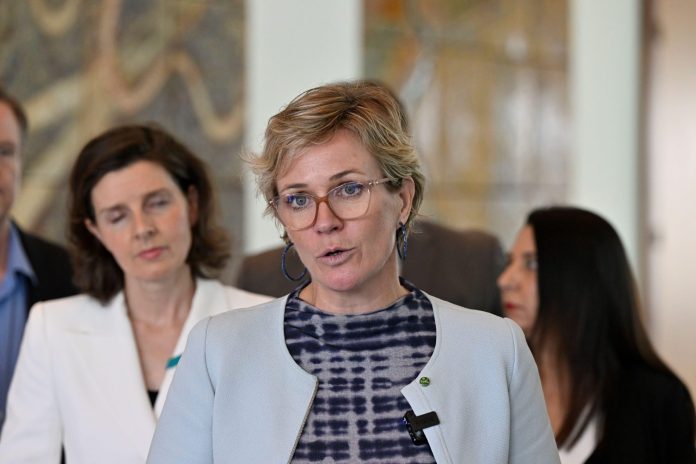The Northern Beaches is one of the tightest housing markets in Australia, with only 0.3 per cent of the total number of homes available for buyers. The average house price is $2.8 million compared to the country’s average house price of $1.2 million. The median rents are $792 compared to the NSW average of $420. Finally, Northern Beaches is the third local government area (LGA) in NSW with the largest total increase in people sleeping rough over the last 12 months, going from 45 in 2023 to 88 in 2024. While these numbers are grim, it’s not really anything new – these issues have been around for years, but they are growing.
The community is invited to attend a forum on the housing crisis, hosted by the local federal MP Zali Steggall.
Panelists include Louise Kerr – Director Planning and Place for Northern Beaches Council, Maiy Azize who is Deputy Director, Anglicare Australia, and Matt Grudnoff – Senior Economist, The Australia Institute.
The Housing Forum is this Wednesday 2 October, at Balgowlah RSL Memorial Club (register to attend here).
“I hope the forum provides me and the community with a status of what’s going on with housing in Warringah and then understanding what the levers are that might be appropriate for our area,” Ms Steggall told Manly Observer.
“Keeping in mind, Warringah is diverse in its housing demographics: about a third are renters, a third are homeowners with a mortgage, and a third have paid off the mortgage. So obviously, those different demographics are going to have different perspectives on the problems.”
She said that just as the housing crisis didn’t suddenly appear, nor will it be an overnight fix.

“Different groups want to dump the blame on one factor, like immigration or negative gearing or supply issues,” the Warringah MP said.
“The reality is we need a number of strategies to tackle the problem, and I hope to bring the community together with experts in the field to help to shape my advocacy for the residents of Warringah.”
While Ms Steggall represents Warringah, the housing issues felt in her electorate extend to all corners of the Northern Beaches.
With increasing costs, young people and young families are struggling to enter the housing market and are being forced out of the Northern Beaches.
“It’s an incredibly important way for young families to be able to enter the housing market to start not only wealth building but security building,” she added.
“At the moment, we have this crisis between very low availability for rent, which then creates a lot of distress for young people being able to at least get into the rental market, which is usually the stepping stone to get into the housing market.”
Lack of rental property availability and high rents aren’t the only problems young families are facing. With landlords upping the rent every 12 months (generally to keep up with increasing mortgage costs), renters are being forced to either pay more or move, which comes with moving costs and bonds. Ms Steggall said this impacts their ability to save for home ownership, keeping them in the rental market longer, which puts stress on rental demand. She called for greater rental rights like longer leases to ease this, plus government incentives for landlords to want longer leases.

These types of changes would also help the demographic with the highest growing homelessness rates – women over 55.
“I’m very concerned that women over 55 are the highest demographic at risk of homelessness,” she said.
“We know there’s a Super gap, but we also know that, for example, if you’re renting and you’re on a 12 month lease and anything happens to your ability to work and pay, that’s how so many find themselves homeless so quickly. That’s a terrible outcome as a society. I think we need to have a conversation around renters and how to provide them with more security.”
Then there is the ability for essential service workers to afford to live locally.
“It’s very difficult for people in certain professions to afford to live in the area, and that becomes a problem when they’re essential services, like teachers, childcare workers, aged care workers, nurses, and police,” she said.
“We know there’s a gap between wage growth and affording to live in our areas. That becomes a problem in terms of adequate services being available to everyone in our community.
“It also creates a real inequity, and I think a generational issue, because, we have young people, young families, not being able to stay here or see their future here, which is problematic from a staffing point of view for local businesses.”
Manly Observer recently reported on the affordability of housing for bus drivers on the Northern Beaches which flows on to the lack of drivers for our struggling bus services. You can read that here.

If high rents aren’t bad enough, there are simply not enough properties available.
“It’s about keeping a balance. We want to make sure foreign ownership is not overtaking local ability to purchase, and people investing in real estate are not out pricing and taking over from local young people or families being able to get into the market,” Ms Steggall said.
She adds that there are no incentives for empty nesters to downsize. Instead, with taxes like Stamp Duty, they’re punished for moving to smaller properties and freeing their large homes for growing families.
“Once you’ve paid off the family home, why would you incur a substantial purchase of something smaller and Stamp Duty?” she asked.
“A lot of people are also equity rich but cash poor, which adds to the problem of being able to afford those upfront costs of downsizing.”
She added that there are also restrictions with Capital Gains tax for renting parts of the family home, like the granny flat or renting out a room. These situations leave large properties with only a couple of inhabitants or vacant rooms or dwellings when there is a shortage in rental properties.
“Another part of the discussion is to increase supply, and on the Northern Beaches, with limited land available, this translates as creating higher density areas,” Ms Steggall explained.
“There’s mixed reactions to higher density building. Locals tend to like the way our area is, but then they can’t complain about their kids, for example, not being able to stay in the area or not having any rental opportunities, if we’re not prepared to see some kind of construction and growing.”



